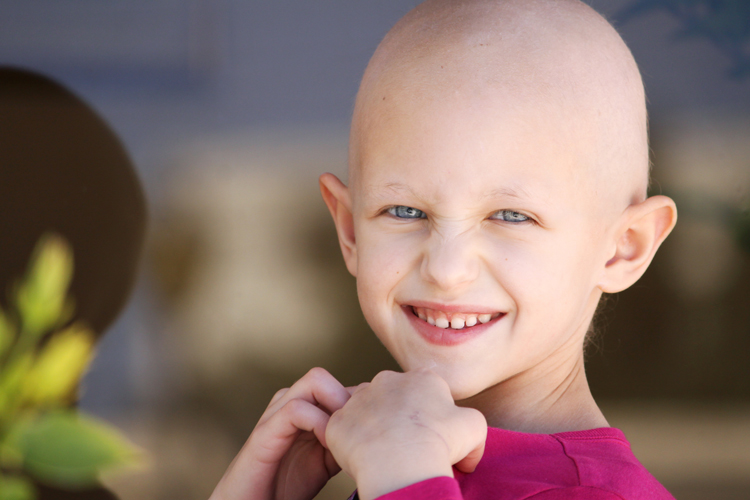No one is prepared for cancer.
“Most people who are diagnosed with a blood cancer are caught off guard and are thrown into what can feel like a very isolating and frightening situation without knowing what resources are available,” says Allison Rosenthal, MD, hematologist, internist and oncologist for the Mayo Clinic in Scottsdale. “Small things can make a very big difference for a patient and his or her family — financial assistance, connections with other blood cancer patients, educational resources and access to someone who can help get answers to some very important questions.”
Dr. Rosenthal can empathize on a personal level with the patients she treats. Before she was a hematologist specializing in the care of lymphoma patients, Rosenthal was in medical school pursuing a career as an orthopedic surgeon. It wasn’t until she was diagnosed with lymphoma that her career and life plan “turned her world upside.”
For those who have been diagnosed with or experienced a family member’s diagnosis with blood cancer, the notion of a world being turned upside down is universal. For more than 70 years, the Leukemia & Lymphoma Society (LLS) has been there to help cancer patients and their family fight to try to turn their worlds upright.
Family crisis
“When a parent is given this sort of diagnosis, the moment just freezes and it truly feels like your whole world has been flipped upside down,” says Melina Herrera whose son Julian was diagnosed with acute lymphoblastic leukemia at age six. “Everyone should be involved with such a wonderful community such as LLS. Since getting involved, I have seen the wonderful evolution of five or six medications being approved in a year, to now seeing more than 10 medications being approved — all because of the wonderful people that have joined LLS to make a difference.”
As the Leukemia & Lymphoma Society celebrates its 70th year, the organization continues to aggressively research, advocate and provide for families who must face what was once considered a “hopeless condition.”
“LLS was founded in 1949 by a family mourning the loss of their 16-year-old son to leukemia,” explains Jim Brewer, executive director for LLS in Arizona. “In the 70 years since, thanks to investment in research, the survival rates for pediatric blood cancers have gotten much better — from just five percent when the organization was founded 70 years ago, to more than 90 percent today in some cases.”
Despite the improved outlook for pediatric blood cancers since 1949, Brewer adds a reminder that survival rates are not yet 100 percent and the treatments themselves are still chemotherapy based. This means long treatment regimens with toxic chemicals that often produce long-term side effects.
“All of that is just not good enough,” Brewer says. “So we’re going to do something about it — and not just for pediatric blood cancer patients — but for all pediatric cancer patients.”
A better way
“We owe it to the world to find better medicine,” adds John Gray, whose daughter Lily was diagnosed with Leukemia at age two, and who also serves on the LLS Arizona Chapter Board of Trustees.
“The reason our family got involved is that we’ve seen what blood cancer and cancer, in general, can do,” adds Gray, an attorney at Perkins Coie, “and we see what it does to little bodies that aren’t built for hundreds of shots and drugs that they’re not able to handle.”
While many children survive acute lymphoblastic leukemia, the most common type of pediatric blood cancer, the treatments are harsh and outdated. While many people are aware of the side effects that treatment such as chemotherapy can create during treatment, such as hair loss, loss of appetite, etc., it’s important to understand how these drugs can affect people — children in particular — in the long term.
According to the American Cancer Society, longer-term side effects of chemotherapy drugs include a range of potential problems related to lower blood cell counts: increased risks of infections, bruising, bleeding and fatigue, to name a few. Nerve damage, increased risk of blood clots, infertility issues, as well as growth and development problems are additional risks of chemotherapy.
While improving quality of life by finding new and better treatment for pediatric blood cancer is certainly a priority of LLS moving forward, there is a much bigger story here.
“In 2018, LLS helped advance 19 of the 21 blood cancer treatments approved by the FDA,” Dr. Rosenthal says. “One of these therapies is a transformative therapy known as CAR-T cell therapy, a treatment now approved for both pediatric and young adults and all adults with aggressive B cell non-Hodgkin’s lymphoma.”
Additionally, LLS is funding a large precision-based study for newly diagnosed acute myeloid leukemia patients aimed at making the treatment more personalized, based on genetic drivers. There are now early therapeutic trials looking at bringing cellular therapy technology (like CAR-T) into the solid tumor space to treat many types of cancer-based proteins expressed by the tumor cells, according to Dr. Rosenthal.
Blood cancer research has a tremendous impact and is revolutionary because of its potential to aid in developing treatment approaches for a number of cancers and diseases — not just blood cancer. Today, blood cancer approaches are being tested in clinical trials for bone, breast, brain, kidney, ovarian, liver, pancreatic, ovarian and prostate cancers; multiple sclerosis; rheumatoid arthritis; melanoma; diabetes; and lupus nephritis.
Challenges remain
Yet despite the possibilities of what new approaches in blood cancer research and treatment can yield, there remains what Brewer says are systematic challenges to pediatric cancer drug approvals.
“We are going to work to solve these challenges by conducting a master trial that will bring together the critical mass of patients in this relatively small patient population so that we can demonstrate the safety, efficacy and economy of proving these therapies will work for children and in what doses,” Brewer says. “The drugs are there, we just need to work through the system to make them available for pediatric patients.”
In addition to the ultimate hope that one day all challenges associated with blood cancer pediatric treatment will be removed, there is an even greater dream for those who have been affected by blood cancers.
“In an ideal world, we won’t even need organizations like LLS anymore,” says Gray. “You’ll be able to go to the doctor and receive treatment as you would for any other issue. It would make these organizations unnecessary because we simply won’t have children’s cancer anymore.”
Until then, LLS remains faithfully and steadfastly committed to moving the needle forward toward viable, accessible treatment solutions. The organization announced that it is more than doubling its investment in pediatric research with the launch of the LLS Children’s Initiative, a $50 million multi-year endeavor. LLS is pioneering an unprecedented collaborative clinical trial to fundamentally change the way pediatric blood cancers are treated, while expanding the services and support it provides for children and families.
“Most, if not all, of the major advancements in cancer treatment, were originally generated with blood cancer research,” Brewer says. “We are very confident that this will be the case with pediatric research. In fact, we have pediatric oncologists who specialize in other types of cancer who have signed on to be a part of our coalition in moving the Children’s Initiative forward because they recognize the promise of what we are doing — not just pediatric blood cancer patients, but for all pediatric cancer patients.”
By the numbers
Investment
4,100: Number of research projects that have been supported by the Leukemia & Lymphoma Society (LLS) since 1949.
$1.3 billion: LLS has invested nearly $1.3 billion in cancer research since 1949.
Innovation
100: LLS is currently funding research at nearly 100 medical institutions across the globe.
$250 million: LLS continues to raise the bar for peer-to-peer fundraising. Participants across all of LLS’ campaigns helped raise a record-breaking total of more than $250 million in 2018.
Impact
56: Number of LLS local chapters.
100,000: More than 100,000 volunteer advocates are effecting change by advocating for policy changes at the state and federal levels.
20,000: Approximately 20,000 inquiries warmed last year to LLS’ information specialists, who provide one-on-one support and education services, including clinical trial navigation.




